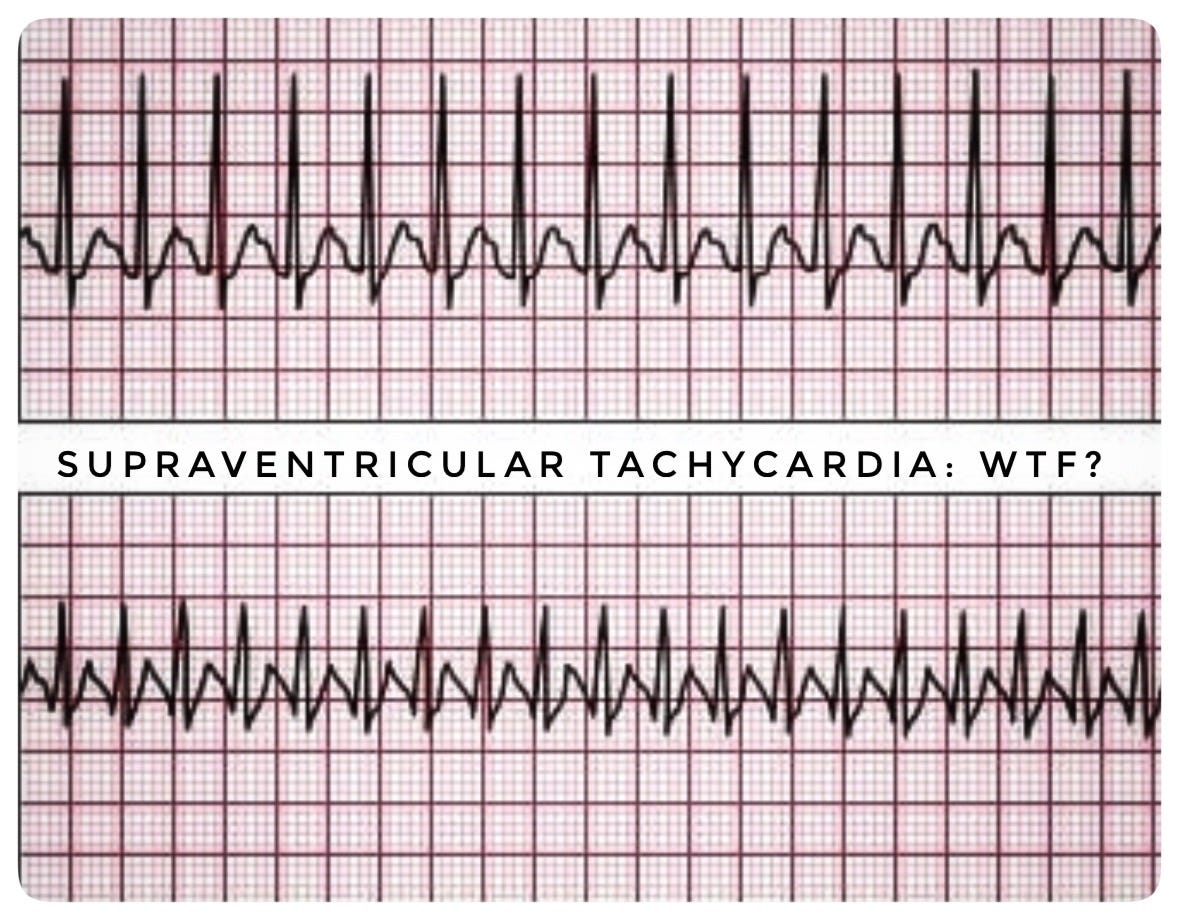Over a period of 6 -12 months I've been experiencing some irregular episodes of irregular heart rhythms. My heart will randomly have an episode where my heart rate increases out of nowhere to 150+ beats per minute for a period of 60 -120 seconds at rest. Generally these haven't worried me in the slightest, they can cease with some slow deep nasal breaths and the frequency is generally once or twice a week.
But they kept coming and after one of the episodes lasted a 3-4 minutes starting while I was laying down watching television I thought I should get checked out, after all I'm a runner and regularly push my body pretty hard. I'm currently training for 50 mile ultra marathon, in fact I'm four weeks out. A routine blood test showed nothing other than lower than normal iron levels, my doctor put me on a 24 hour holter monitor, an ECG machine you wear continuously for 24 hours. During this time I had, as luck would have it one of my episodes. I was driving my son to swimming lessons and the heart went fast, nothing new, and it went away pretty quickly. The holter data said 55 sec at 155 bpm.
Doctor diagnoses me with a Supraventricular Tachycardia via the holter monitor data. Nothing deadly I'm told and shouldn't cause much difference to your life. But let's go and see a cardiologist for a second, expert opinion and dot our I's and cross our T's. We don't recommend medication as it'll lower your heart rate and stop it reaching close to it's maximum, this isn't good for you being a runner and we want you to still be able to exercise as normal. Don't change your routine in the meantime, train, work and live your life as per normal.
Enter the cardiologist, a resting ECG and heart ultrasound later and we confirm a supraventricular tachycardia. A good explanation of what a supraventricular tachycardia actually is and I'm reassured it's a non deadly heart condition. We have three courses of action. 1) Vagal techniques. Breathing techniques that are designed to activate the vagal nerve, turns out my breathing techniques are what I've already been doing, they give relief from the symptoms but they aren't making these go away. 2) Pharmaceutical inventions. That's two words to say medication. With a resting heart rate in the high 30's this isn't an option, it'll lower my heart rate too far and cause other problems. 3) Surgical intervention. Turns out I'm a good candidate for a non invasive surgery that has a high success rate of eliminating the problem. I'm referred to a heart surgeon for a consultation.
This is all going pretty fast. For a problem that doesn't cause too much worry, now I'm a good candidate for heart surgery. I ask a few questions and gain some more information, it's not as scary as it first sounds. I'm reassured that the surge will consult with me and let me know the next cause of action.
Last question I ask, what about running? Deep breath, I've got an 80km ultra in four weeks and it's a non deadly heart issue right. It was only two days before I did a hard hill workout and then followed it up with some threshold efforts on the road. My fitness is right where I want it to be four weeks out from a goal race. "It is advised that you moderate your running." Moderate, what does that mean. Does that mean you advise against me running a hard 80km race in four weeks time? "At least till you've spoken to the surgeon." But you said it was non deadly, what's the worst that could happen? "It is unlikely, butwe just don't know exactly what can happen. Insert cardiologists explanation of what could happen which translates to possible sudden death." Not quite the answer I was hoping for. " I know that's not the answer you wanted." Well thanks, you got that right.
After the cardiologist and I have a frank discussion about what could happen I'm left a little dazed. Of course I don't want to "moderate" my running. I'm not far away from a goal race, I've been working hard to get my fitness where it needs to be, I'm confident this race is going to go well. "Often endurance types like you ignore our advice and nothing happens" he adds at one point. Should I just ignore the advice and get through the race I think.
My thoughts that day are constantly on supraventricular tachycardia. Next morning I wake up and think, I'm in my 40's, I've got a wife and three kids, I'm not going to the Olympics, there will be other races. It's not worth the risk. Then I think, maybe this is the end of my competitive running life, maybe I've fired my last competitive shot.
Running is a big part of my life, it's a big part of my identity. This could be a larger existential crisis than I thought possible when entering the cardiologists rooms.
Anyone want to buy a race entry.
To be continued.....
.




